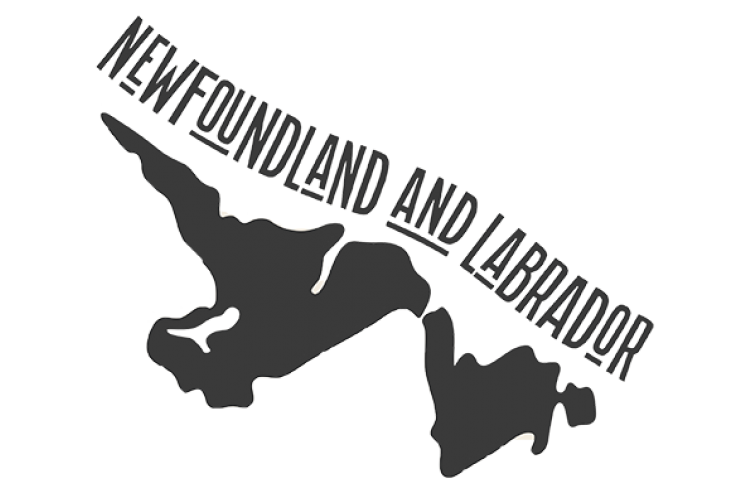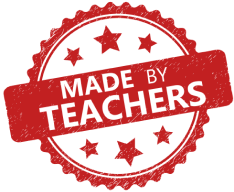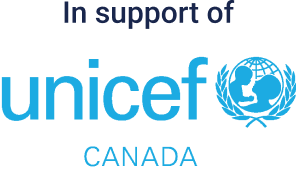Newfoundland and Labrador Grade 7

CLICK HERE FOR CURRICULUM CONNECTIONS, LESSONS AND SUPPORT RESOURCES.
Made by a Grade 7 teacher in Newfoundland & Labrador.
Kids Boost Immunity (KBI) provides educational content (lessons and support materials) developed by teachers and where needed, health experts, that is directly linked to curriculum and is available completely for free. Each lesson is paired with an online quiz that students can take on a laptop, tablet, or phone. Every time a student scores 80% or higher on a quiz, we donate life-saving vaccines to UNICEF Canada. To learn more about KBI, click here.
Click on the overarching curriculum themes below to see the curriculum outcomes that match KBI educational content. The full Grade 7 Newfoundland & Labrador Curriculum Connections document is here.
- Health
-
Curricular outcomes:
Health - Major Program Outcomes (MPO)
- Wellness encompasses the physical, intellectual, social and spiritual aspects of a person.
- Each person has to some degree the responsibility and capability for wellness.
- Concepts, Processes and Skills (CPS)
- Identifying sources of information and support related to health and personal development.
- Acquiring and evaluating information
- The decision making process and making informed decisions.
- Major Skills
- Decision Making
- Distinguishing Fact from Opinion
- Critical and Creative Thinking
- Problem Solving
Safety and Environmental Health
- 7. To examine some of our own actions and identify some changes that can be made on an individual basis in relation to personal and environmental health.
- 8. To identify practices and activities that pose a threat to the environment and the health of people
- 9. To consider the kinds of changes that are necessary to protect the environment and the health of people
- 10. To examine some of our own actions and to identify changes that can be made on an individual basis in relation to personal and environmental health.
Emotional and Social Well-being
- 6. To engage in activities designed to enhance self-esteem.
- 10. To develop strategies for dealing with negative feelings.
- 13. To consider positive ways of dealing with stress.
Applicable KBI lessons:
1. Critical Thinking & Evaluating Information
- Literacy builder worksheet/answer guide
- Lesson worksheet/answers
- Video worksheet/answers
- Inquiry activities/answer guides
- Numeracy activity/answers
2. Navigating the World of Online (Mis)Information
- Literacy builder worksheet/answer guide
- Lesson worksheet/answers
- Video worksheet/answers
- Inquiry activities/answer guides
3. The Spread of Infectious Diseases
4. Germs, The Body’s Defense System, & How Vaccines Help
- Lesson worksheet/answers
- Inquiry activities/answer guides
5. Canada’s Interactions with the Global Community
- Literacy builder worksheet/answer guide
- Lesson worksheet/answers
- Inquiry activities/answer guides
6. Global Inequality
- Literacy builder worksheet/answer guide
- Lesson worksheet/answers
- Inquiry activities/answer guides
7. Scientific Curiosity and Vaccine Discoveries
- Literacy builder worksheets/answer guides
- Inquiry activities
8. Antibiotics
9. Influenza
10. Social and Emotional Learning
- Science
-
Curricular outcomes:
Ecosystems:
- 304-1 explain how biological classification takes into account the diversity of life on Earth.
- 304-2 identify the roles of producers, consumers, and decomposers in a local ecosystem, and describe both their diversity and their interactions
- 306-1 describe how energy is supplied to, and how it flows through, a food web
- 306-2 describe how matter is recycled in an ecosystem through interactions among plants, animals, fungi and microorganisms
- 306-3 describe interactions between biotic and abiotic factors in an ecosystem
- 306-4 identify signs of ecological succession in a local ecosystem
Stewardship
- 432 be sensitive and responsible in maintaining a balance between the needs of humans and a sustainable environment
- 433 project, beyond the personal, consequences of proposed actions
Appreciation of Science
- 423 appreciate that the applications of science and technology can have advantages and disadvantages
Social and Environmental Contexts of Science and Technology
- Students will develop an understanding of the nature of science and technology, of the relationships between science and technology, and of the social and environmental contexts of science and technology.
- 113-9 make informed decisions about applications of science and technology, taking into account environmental and social advantages and disadvantages
- 113-11 propose a course of action on social issues related to science and technology, taking into account personal needs
Social and Environmental Contexts of Science and Technology
- Students will develop an understanding of the nature of science and technology, of the relationships between science and technology, and of the social and environmental contexts of science and technology.
- 112-7 provide examples of how science and technology affect their lives and community
- 112-9 identify science- and technology-based careers in their community
- 113-9 make informed decisions about applications of science and technology, taking into account environmental and social advantages and disadvantages
- 113-11 propose a course of action on social issues related to science and technology, taking into account personal needs
Skills: Students will develop the skills required for scientific and technological inquiry, for solving problems, for communicating scientific ideas and results, for working collaboratively, and for making informed decisions.
- 208-2 identify questions to investigate arising from practical problems and issues
- 208-3 define and delimit questions and problems to facilitate investigation
- 209-1 carry out procedures controlling the major variable
- 209-4 organize data using a format that is appropriate to the task or experiment
- 211-2 communicate questions, ideas, intentions, plans and results, using lists, notes in point form, sentences, data tables, graphs, drawings, oral language, and other means 211-3 work cooperatively with team members to develop and carry out a plan, and troubleshoot problems as they arise
- 211-4 evaluate individual and group processes used in planning, problem solving, decision making, and completing a task
- 211-5 defend a given position on an issue or problem, based on their findings
Skills: Communication and Teamwork
- 211-3 work cooperatively with team members to develop and carry out a plan, and troubleshoot problems as they arise
- 211-4 evaluate individual and group processes used in planning, problem solving, decision making, and completing a task
Applicable KBI lessons:
1. Diversity of Living Things
- Literacy builder worksheet/answer guide
- Lesson worksheet/answers
- Video worksheet/answers
2. Environment & Climate Change
- Literacy builder worksheet/answer guide
- Lesson worksheet/answers
- Video worksheet/answers
- Inquiry activities/answer guides
- Numeracy activity/answers
3. Evolution and Natural Selection
- Literacy builder worksheet/answer guide
- Lesson worksheet/answers
- Video worksheet/answers
- Inquiry activities/answer guides
- Numeracy activity/answers
4. Germs, The Body’s Defense System, & How Vaccines Help
- Lesson worksheet/answers
- Inquiry activities/answer guides
5. Scientific Curiosity and Vaccine Discoveries
- Literacy builder worksheets/answer guides
- Inquiry activities
6. Antibiotics
7. Influenza
8. An Inquiry Activity: Become an Outbreak Investigator
- Social Studies
-
Curricular outcomes:
Unit One - Introduction
- 7.1.1 Explore the general concept of empowerment define power and authority and explain how each influences their own lives identify and categorize sources of power and authority identify groups that are empowered and disempowered in our society (local, national, and global)
Unit Two - Economic empowerment
- 7.2.1 Investigate the various ways that economics empowers or disempowers people
- explain that people have basic needs that must be met analyse the role that money plays in meeting basic needs
- explain how capital is empowering investigate and report on the challenges of the poverty cycle
Unit Three - Political Empowerment:
- 7.3.1 evaluate the conditions of everyday life for diverse peoples living in British North America in the mid1800s, including Aboriginal peoples, African-Canadians and Acadians
Unit Four - Cultural Empowerment:
- 7.4.1 explain how the expansion and development of Canada during the 1870s and early 1880s affected its various peoples and regions
- 7.4.3 analyze the degree of empowerment and disempowerment for Aboriginal peoples in present day Atlantic Canada during this period
- explain how capital is empowering investigate and report on the challenges of the poverty cycle
Content, Processes and Skills:
- Identifying sources of information and support related to health and personal development.
Safety and Environmental Health
- 7. To analyze the intent of rules, regulations and laws related to safety practices and protection.
Skills:
- Communication:
- Listen actively to acquire information
- Make persuasive arguments
Participation:
- Function in a variety of groupings using collaborative and cooperative skills and strategies
Applicable KBI lessons:
1. Life on Turtle Island
- Literacy builder worksheet/answer guide
- Lesson worksheet/answers
- Holistic reflection activity
2. Canada's Three Levels of Government
- Literacy builder worksheet/answer guide
- Lesson worksheet/answers
- Video worksheet/answers
- Inquiry activities/answer guides
- Numeracy activity/answers
3. Germs, The Body’s Defense System, & How Vaccines Help
- Lesson worksheet/answers
- Inquiry activities/answer guides
4. Canada's Interactions with the Global Community
- Literacy builder worksheet/answer guide
- Lesson worksheet/answers
- Video worksheet/answers
- Inquiry activities/answer guides
- Numeracy activity/answers
5. Global Inequality
- Literacy builder worksheet/answer guide
- Lesson worksheet/answers
- Video worksheet/answers
- Inquiry activities/answer guides
- Numeracy activity/answers
Curriculum-Related Themes Throughout the Year
- Reflecting on hardships and courage during WWII (November)
-
Curricular outcomes:
Social Studies – GCO: Time, Continuity and Change
- By the end of grade 9, students will be expected to
- identify and analyse trends that could shape the future
- demonstrate an understanding that the interpretation of history reflects perspectives, frames of reference, and biases
Unit 5 - Societal Empowerment
- In grade 7, students will be expected to: 7.5.1 evaluate the conditions of everyday life for the peoples of Canada at the turn of the 20th century.
Unit 6 - National Empowerment
- Students will be expected to:
- 7.6.2 examine Canada’s participation in World War 1
- 7.6.3 demonstrate an understanding of the impact of World War 1 on Canada and her people
Applicable KBI lessons:
1. Remembrance Day / Veterans Day / Armistice Day
- By the end of grade 9, students will be expected to
- Building Leadership Skills To Help Others (December)
-
Curricular outcomes:
Health - Emotional and Social Well-Being
- 1. To understand the meaning of self-concept and the factors that influence its formation.
- 2. To develop an understanding of the uniqueness of each individual.
Applicable KBI lessons:
1. Winter Break - A Time To Reflect on Making a Difference
- Inquiry/creative activities
- Highlighting some key inspirational leaders during Black History Month as well as some experiences of refugees from different parts of the world (February)
-
Curricular outcomes:
Social Studies - Unit One: Introduction
- 7.1.1 Explore the general concept of empowerment
- define power and authority and explain how each influences their own lives
- identify and categorize sources of power and authority
- identify groups that are empowered and disempowered in our society (local, national, and global)
Social Studies - Unit Three: Political Empowerment
- 7.3.1 Evaluate the conditions of everyday life for diverse peoples living in British North America in the mid-1800s, including Aboriginal peoples, African-Canadians, and Acadians
Applicable KBI lessons:
1. Black History Month
2. Refugee Experiences
- Lesson worksheet/answers
- Inquiry activities
- 7.1.1 Explore the general concept of empowerment
- Celebrating Inspiring Women in STEM (March)
-
Curricular outcomes:
Science - Appreciation of Science
- 424 appreciate and respect that science has evolved from different views held by women and men from a variety of societies and cultural backgrounds
Science - Relationships Between Science and Technology
- 111-1 provide examples of scientific knowledge that have resulted in the development of technologies
- 112-7 provide examples of how science and technology affect their lives and community
- 112-9 identify science- and technology-based careers in their community
Applicable KBI lessons:
1. International Women's Day - Celebrating Inspiring Women in STEM
- Literacy builder worksheets/answer guides
- Numeracy activity
- Inquiry activities
- Learning About Infectious Diseases During Immunization Awareness Week (April)
-
Curricular outcomes:
Health - Safety and Environmental Health
- 9. To consider the kinds of changes that are necessary to protect the environment and the health of individuals.
- 10. To consider ways of initiating and participating in social actions that may lead to protection of the environment and the promotion of health.
Applicable KBI lessons:
1. Immunization Awareness Week




